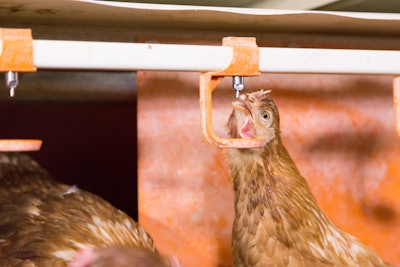
The Supreme Court will hear a case on October 11, 2022, arguing that California’s Proposition 12 violates a U.S. law by regulating pork producers and the pork market outside the state. If the hearing rules in favor of the plaintiffs, the housing mandate’s effect on the layer industry could be seriously questioned.
The brief was filed by the National Pork Producer’s Council (NPPC) and the American Farm Bureau Federation (AFBF) in June 2022 and alleged the housing law would have a negative impact on the country’s interstate pork market.
Implementation of Proposition 12 for pork products had already been postponed because California’s regulations for pork producers have not been finalized.
However, this is not the case for the egg industry. In January 2022, Proposition 12 was implemented for all egg producers in California, and for out of state egg producers who sell eggs in California.
The conversion had been expected to have major effects on the egg market and supply. To the surprise of many, the law’s implementation went relatively smoothly because bigger retail markets began requesting cage-free eggs months before January 2022. Additionally, some of the larger U.S. egg producers started converting housing to cage-free well before the deadline.
The problem will mostly be a financial one
Proposition 12 was the first layer housing law voted in for the U.S. The law forced a significant portion of egg producers to make a tough decision: convert to cage free or go out of business. A good number of producers took the financial hit and converted their facilities to cage-free housing.
An important point to make is that not every egg producer who lives in a cage-free mandated state, or that produces for that state, has converted their farm yet. Some producers are holding out to see what their state does while others do not want to rush into millions of dollars of debt.
Additionally, the fact that the Supreme Court is even hearing the case might prevent other states from implementing similar laws.
In an extreme world, Proposition 12 gets overturned for the pork industry, which brings the law’s impact on the egg industry back into question and eventually reverses all together. Those egg producers that chose to convert are now in a large amount of debt and are producing cage-free eggs for a market that potentially will not buy them.
Will producers be able to sell their cage-free eggs for a higher price and cover the cost of converting? Or will they have to sell those eggs with a conventional label for a lower price, putting their own business at financial risk?
If the Supreme Court upholds Proposition 12, then the U.S. layer industry will continue the present course which will likely find well over half and perhaps as much as two-thirds of the U.S. layer flock in cage-free or free-range housing by the end of the decade. If the Supreme Court rules that one state can’t dictate how animals are raised in another state, then consumers of eggs and the buyers at major retail and foodservice chains will decide with their wallets how U.S. hens are housed.


















